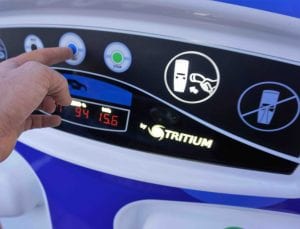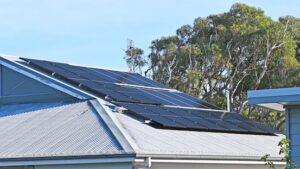Electricity retailer Origin Energy is to roll out smart EV chargers to up to 150 customers to test the ability of electric vehicle charging to be remotely monitored, controlled and optimised to minimise impacts on the electricity grid.
In a $2.9 million trial, partly funded by ARENA, Origin will evaluate the needs of electric vehicle owners and to understand EV driver behaviour, while also identifying what incentives would be appropriate to allow charging infrastructure to be centrally controlled.
“EV adoption is expected to increase significantly in the coming years with the price of new EV models continuing to fall and performance and range improving all the time,” Origin’s general manager for future energy and technology, Tony Lucas, said.
“We hope this trial will help us understand how we can maximise the benefits to customers by offering products that reduce their EV charging costs, as well as how we can manage EV charging in a way that helps with grid and network stability.”
Electricity retailers and network operators have recognised both the looming challenges and the opportunities that are being created through an accelerating shift towards electric vehicles.
While electric vehicles will shift more of the transport sector’s energy use on to the electricity system, they also provide a chance to better coordinate the electricity system, by allowing electric vehicles to absorb otherwise excess wind and solar generation, and potentially feeding power back into the grid through two-way chargers.
Origin Energy has previously foreshadowed a major role for EVs, in the grid, one of the reasons it favours smaller “plug and play” batteries that can be installed like other home appliances. It sees the bigger storage play in the bigger batteries in EVs.
Under the Origin Energy trial, the smart chargers will be integrated into Origin Energy’s Virtual Power Plant platform, allowing for factors like wholesale electricity prices and total grid demand to coordinate how and when EVs are charged.
“Smart chargers will be able to talk to the platform, which can remotely direct chargers to switch on and off, or higher or lower, in response to wholesale prices, with benefits for customers in terms of lower charging costs and the NEM as we can more efficiently manage demand and supply in the system,” Lucas added.
“We want to get people thinking about EVs as more than just a car and saving on petrol, they can provide additional value to their owners through battery storage for the home, connected to virtual power plants or used for grid stabilisation, all of which will significantly reduce payback periods and improve the economics of EV ownership for many Australians.”
The deployment of smart charging systems is being supported by an $838,000 grant from the Australian Renewable Energy Agency, recognising the ability to minimise costs for drivers while supporting the reliability of the electricity system will both facilitate greater uptake of electric vehicle models.
“As the uptake of EVs increases, it will be important to efficiently manage the charging of vehicles, to avoid potentially costly impacts on peak demand, associated network charges and grid security issues,” ARENA CEO Darren Miller said.
“Smart charging enables charging at times when demand is lowest and electricity is cheapest, which reduces the burden on the network and the cost to the customer.”
“It is well known that electricity costs much less than petrol in terms of powering cars and light-duty commercial vehicles. However, EVs provide additional economic opportunities for consumers through the potential of further reduced electricity costs from higher network utilisation and possible revenue generation via technologies such as vehicle-to-grid technology which ARENA is also supporting,” Miller added.
Under the Origin Energy trial, up to 150 of the retailer’s customers across New South Wales, Victoria, Queensland and South Australia will be able to participate in the trial.
To read the full version of this story on RenewEconomy’s electric vehicle dedicated site, The Driven, please click here.










